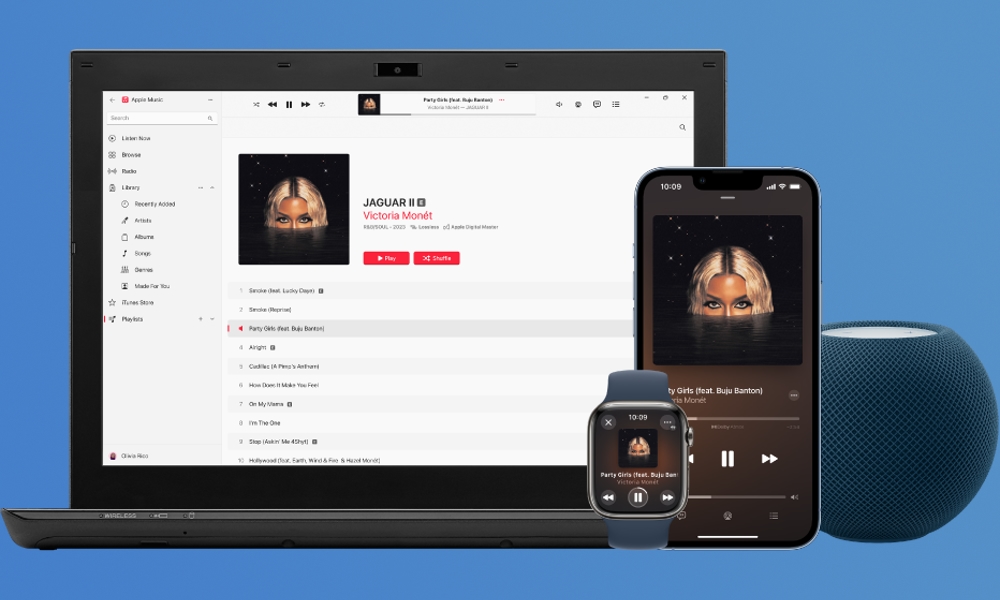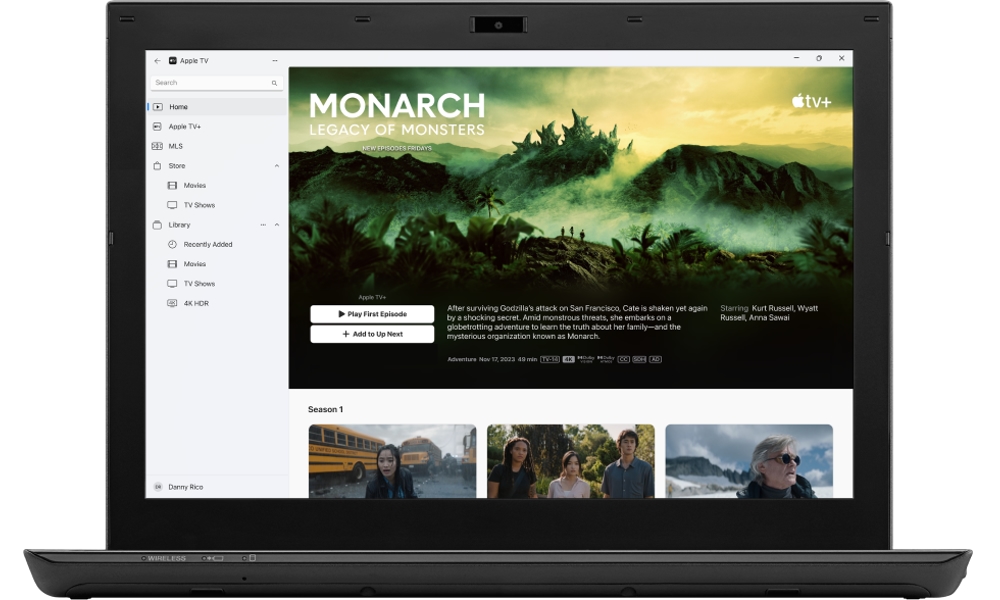Apple Drives One More Nail into the iTunes for Windows Coffin

Toggle Dark Mode
There was a time when Apple’s iTunes app was synonymous with all things digital music, but over the years that transpired between the early iPod and iTunes Music Store and the iPhone, iPad, and Apple TV, it’s fair to say that the app quickly became a bloated mess.
From its humble beginnings as a way to rip CDs, buy music online, and load it all onto your iPod, iTunes gradually added support for podcasts, audiobooks, and eventually movies and TV shows — and that was all before the iPhone debuted in 2007.
With the iPhone, and later the iPad, iTunes also became the place to load apps and manage home screens, back up your iPhone or iPad to your Mac or PC, and even load ebooks onto it. By then, the name “iTunes” seemed rather quaint, as there was a lot more to this app than just “tunes.”
For Mac users, Apple began peeling away some of that functionality in 2013, first breaking ebooks out into their own separate “iBooks” app (which became “Apple Books” in 2018 with the release of iOS 12 and macOS Mojave) and also stripping out iPhone and iPad app management with iTunes 12.7 in 2017. Then, macOS Catalina came along and killed iTunes outright, replacing it with distinct apps for music, podcasts, TV shows, and movies, moving the audiobook capabilities into Apple Books and syncing and device management into Finder.
However, iTunes has continued to live on for Windows users, virtually unchanged other than the removal of app management. Even Apple Books doesn’t get a separate app on Windows, despite the arrival of the “iBooks” app in Mac OS X Mavericks over ten years ago.
For the most part, that’s been disappointing news for iPhone and iPad owners who use Windows PCs, as iTunes has traditionally been an even more bloated and ugly beast on that platform than it was on the Mac. Plus, Windows users have no way to watch Apple TV+ programming natively; they have to resort to Apple’s browser-based interface.
New Apple Music and TV Apps for Windows
The good news for Windows users is that Apple has now taken what we’re hoping is just the first step in a longer-term plan to retire iTunes for Windows entirely.
Rumors of iTunes’ demise have been making the rounds for nearly four years now, and while we had a glimmer of hope when Apple released Xbox Music and Podcasts apps, those never came to Windows PCs.
However, this week, Apple released three new standalone apps for Windows: Apple Music, Apple TV, and Apple Devices.
As you might expect, these each take over the appropriate parts of iTunes for Windows, but sadly, they aren’t enough to replace iTunes entirely.
- Apple Music for Windows: This will do most of the same things as Apple Music for Mac, including not only accessing and downloading streaming tracks from the Apple Music subscription service but also managing your own iTunes library of purchased and imported content. The user guide doesn’t say anything about importing or “ripping” music directly from CDs, so it’s not clear if that will still be supported. However, you can still import any compatible MP3 or other audio file on your computer.
- Apple TV for Windows: Again, like its Mac counterpart, this will provide access to Movies and TV Shows purchased or rented from the iTunes Store (and the ability to buy or rent more), plus give subscribers a native app to stream from Apple TV+ for the first time, including add-on subscription packages like MLS Season Pass.
- Apple Devices: Since Apple controls the entire Mac operating system, it was able to bake the device management functionality from iTunes into the macOS Finder app. That’s not as doable for Windows Explorer, so Apple Devices is the standalone app that will let you back up your iPhone or iPad and sync content to it manually, should you need to.
The Apple Devices app may not be strictly necessary for those who rely entirely on iCloud and Apple Music — or even just iTunes Match, which is still available for those who only want to sync their personal music library via the cloud. However, it’s part of the package, as Apple says you need to download all three apps to make everything work.
While these three apps replicate what most folks use iTunes for, it seems that Apple’s older monolithic app isn’t dead on Windows just yet. You’ll still need it to access podcasts and audiobooks, as Apple isn’t (yet) releasing Apple Podcasts for Windows or Apple Books for Windows. Hopefully, those will be next.
As with the macOS experience, these apps still use an iTunes library under the hood. Apple has rearranged these folders and their names a bit on the Mac, but it hasn’t done this on Windows yet, and it clearly states you shouldn’t delete your iTunes library.
The new Apple Music, Apple TV, and Apple Devices apps require Windows 10 or later; those running older versions of Windows can still use iTunes, but it’s highly recommended to upgrade to Windows 10 as Microsoft ended all support for Windows 8.1 on January 10, 2023, including security updates.







